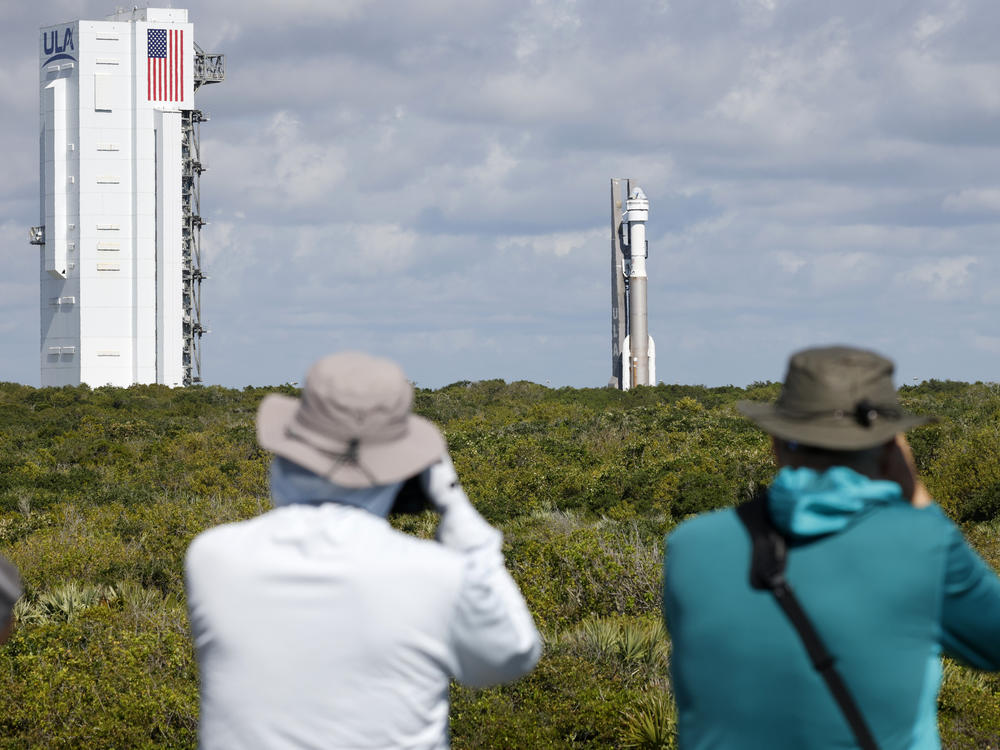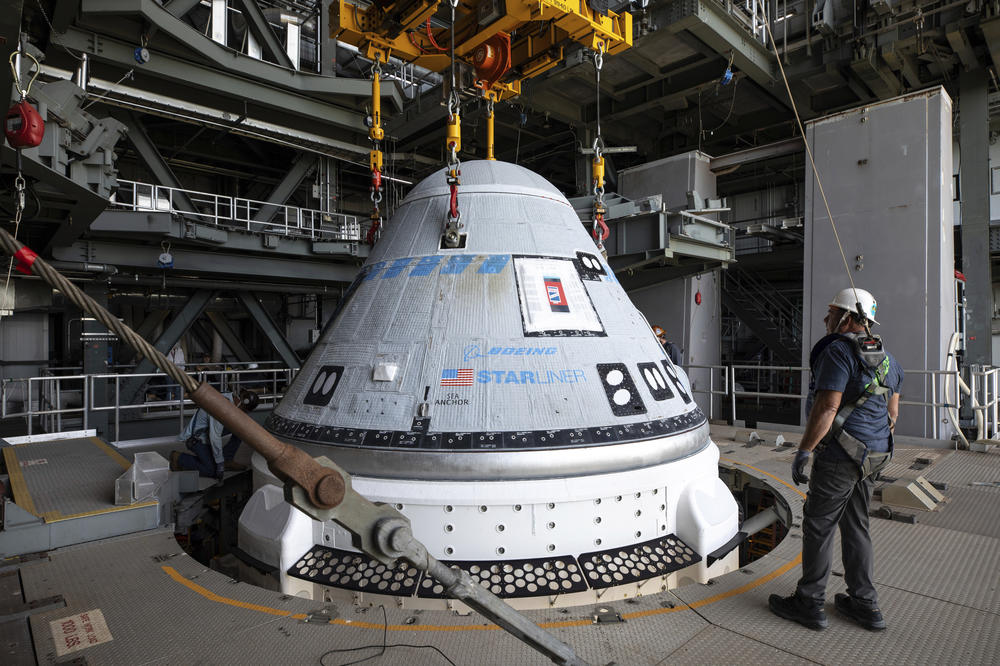Section Branding
Header Content
Launch for Boeing Starliner's first crewed ride into space has been scrubbed
Primary Content
After a series of troubled test flights and ongoing problems with its commercial aviation wing, Boeing will have to wait a little longer before it can fly people for the first time on its Starliner capsule.
Monday's launch from Cape Canaveral, Fla., was called off ahead of its planned 10:34 p.m. EST launch because of a faulty oxygen relief valve, according to NASA. The next launch attempt will take place no earlier than Friday, according to a statement from United Launch Alliance, the company behind the Atlas V rocket that will carry the capsule into space.
The latest test flight comes roughly a decade after NASA awarded Boeing a more than $4 billion contract as part of the agency's effort to pay private companies to help ferry astronauts to and from the International Space Station, following the retirement of the space shuttle in 2011.
SpaceX, which was also awarded a contract through the same NASA initiative, has flown nine missions for NASA and another four private, crewed spaceflights.
Boeing's Starliner program has been plagued with delays and design problems for several years.
The Starliner failed to reach the I.S.S. during its first mission in 2019 after its onboard clock, which was set incorrectly, caused a computer to fire the capsule's engines too early. The spacecraft successfully docked with the I.S.S. during its second test flight in 2022, despite the failure of some thrusters during the launch.
Boeing then scrapped the planned launch of the Starliner's first crewed flight last year, after company officials realized that adhesive tape used on the craft to wrap hundreds of yards of wiring was flammable, and lines connecting the capsule to its three parachutes appeared to be weaker than expected. The launch was delayed indefinitely.
Ahead of Monday's planned launch attempt, the aerospace giant and NASA both had expressed confidence that Starliner was ready for its first crewed voyage into orbit.
"We are to a state now where we are ready to perform the test flight," Mark Nappi, Boeing vice president and program manager of the Commercial Crew Program, said during a Friday press conference. "I've never felt readier on any mission that I've ever participated in."
Two veteran NASA astronauts — Barry "Butch" Wilmore and Sunita "Suni" Williams — are supposed to fly aboard the Starliner and spend about a week at the I.S.S. before returning to Earth.
"We feel very safe and very comfortable when this spacecraft flies," Williams said earlier this month. "This is where we're supposed to be."
Wilmore told reporters earlier this month that his and Williams' backgrounds as Navy pilots propelled them onto the Starliner mission.
"I know I don't think either one of us ever dreamed that we'd be associated with the first flight of a brand new spacecraft," Wilmore said. "But we wouldn't be here if it wasn't for that."
Laura Forczyk, executive director of the space consulting firm Astralytical, said the "stakes are higher" for this test flight because it's the first time Starliner will travel with people on board.
Forczyk said the two-year gap between the Starliner's last successful test flight and this week's planned launch "both gives me confidence, because it means that NASA and Boeing are taking this very seriously, but it also makes me nervous because it has been two years since this vehicle has been operational."
Meanwhile, Boeing has been facing intense scrutiny this year on the commercial aviation side of its business after a rear door plug blew out of an Alaska Airlines flight shortly after takeoff in January.
Whistleblowers have since come forward to detail alleged quality control lapses at the storied company, and the Federal Aviation Administration said it was opening an audit into Boeing's production. The Justice Department also announced it would open a criminal investigation into the Alaska Airlines incident.
NPR's Geoff Brumfiel contributed reporting.


